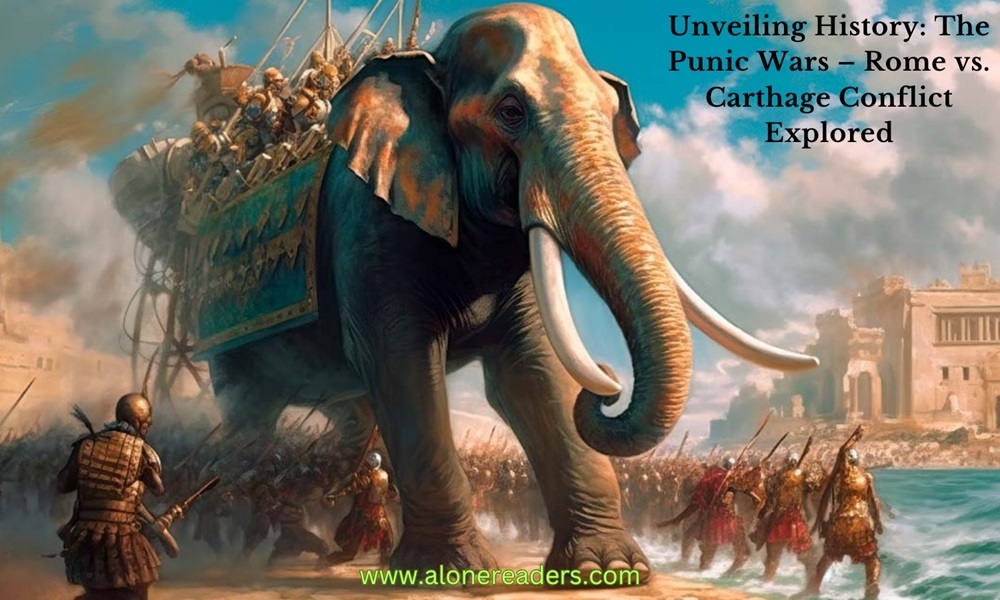
The Punic Wars, a series of three epic conflicts between the burgeoning Roman Republic and the powerful Carthaginian Empire, stand as one of the most significant series of events in ancient history. These wars, spanning over a century, dramatically reshaped the course of Western civilization, paving the way for the rise of Rome as a preeminent power in the Mediterranean.
The First Punic War (264-241 BC) was primarily a naval conflict. Rome, then a dominant force on the Italian peninsula, faced Carthage, a wealthy and powerful city-state in North Africa, renowned for its naval prowess. The conflict began over control of Sicily, a strategically crucial island. Rome, initially at a disadvantage at sea, innovated by creating the 'corvus', a boarding bridge that allowed their soldiers to engage in hand-to-hand combat, a field where they excelled. This ingenuity turned the tide in Rome's favor, leading to their victory and the acquisition of Sicily.
The Second Punic War (218-201 BC) is the most famous of the three, marked by the Carthaginian general Hannibal's audacious crossing of the Alps with his army and war elephants. This bold maneuver allowed Hannibal to invade Italy from the north, bringing the war to the Roman heartland. Hannibal achieved several stunning victories, including the Battle of Cannae, one of the most tactically brilliant military operations in history. However, despite his successes, Hannibal could not secure a decisive victory. Meanwhile, the Roman general Scipio Africanus adopted a bold strategy, taking the war to North Africa and threatening Carthage itself. This forced Hannibal to return to Africa, where he was defeated at the Battle of Zama in 202 BC, resulting in a Roman victory and a severe weakening of Carthage.
The Third Punic War (149-146 BC) was largely a siege of Carthage by Roman forces. By this time, Rome was wary of Carthage's potential resurgence as a power. Despite Carthage being significantly weakened and posing little threat, Rome laid siege to the city. After a brutal and prolonged siege, Carthage was captured and destroyed, its lands annexed and its people sold into slavery. This marked the end of the Carthaginian Empire and the dominance of Rome in the western Mediterranean.
The Punic Wars had profound impacts on the development of both Rome and the Mediterranean world. Rome emerged as the uncontested power, extending its influence over a vast area. These wars also marked significant military and naval innovations, such as the Roman adaptation of the Carthaginian quinquereme in naval warfare and the development of logistics and siege warfare.
Furthermore, the Punic Wars had a lasting cultural and political impact. The destruction of Carthage ended a significant cultural and economic power in the Mediterranean. For Rome, the wars fueled a period of expansion and consolidation, laying the groundwork for the transition from Republic to Empire. The conflict also heightened Roman militarism and contributed to changes in Roman society, including the rise of powerful military leaders and the increasing reliance on slaves.
The legacy of the Punic Wars is also evident in modern culture. The tale of Hannibal's crossing of the Alps remains one of the most iconic military endeavors in history. Moreover, the phrase "Carthaginian peace" has come to describe a peace settlement that is overly harsh and punitive, stemming from the brutal terms imposed on Carthage after the Second Punic War.
In conclusion, the Punic Wars were more than just a series of battles between two ancient powers. They were a crucible that transformed the Roman Republic, reshaped the Mediterranean world, and left an indelible mark on history. Through these conflicts, Rome established itself as a dominant force, setting the stage for centuries of influence and shaping the future course of Western civilization. The saga of Rome versus Carthage in the Punic Wars is a dramatic and pivotal chapter in the annals of history, a testament to the enduring impact of military conflict on the course of human events.